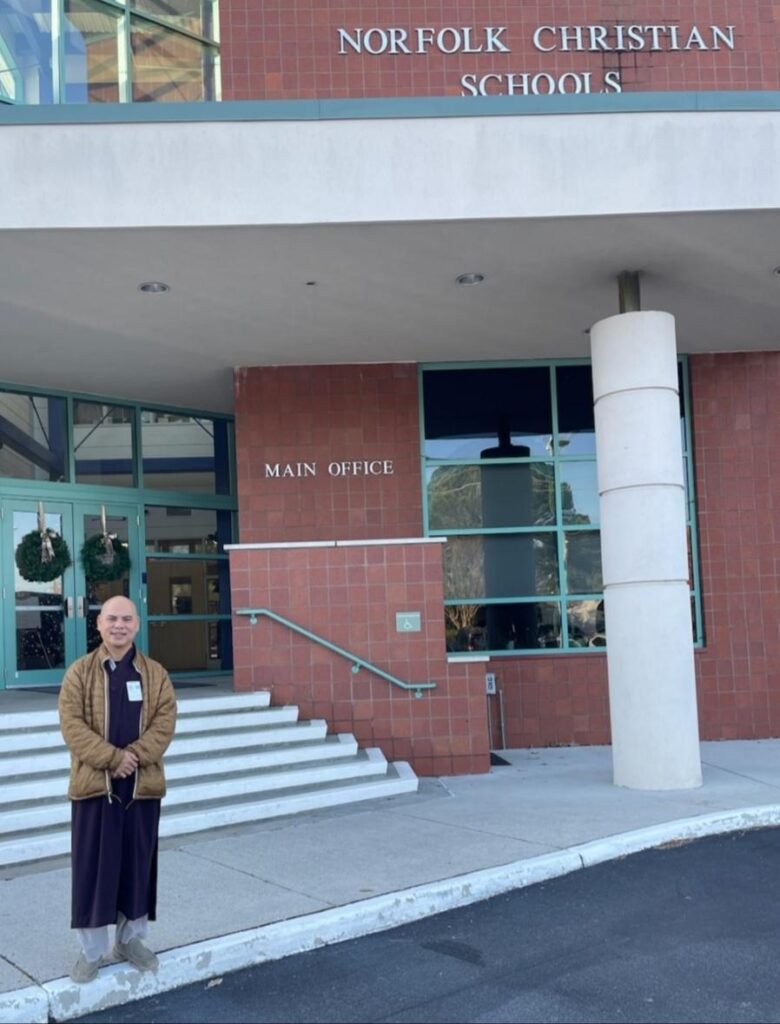
On December 13th, Thay Chuc Thanh spoke on Buddhism to a class of sophomores at Norfolk Christian School. He had been invited by the teacher of a World Religions class, Joshua Gangl, and was sent five questions to cover in his talk, after which the class would be opened for questions. Thay started by speaking on the cycles of rebirth, and how our own actions of thought, word, and deed were what determined whether we would experience a favorable or unfavorable rebirth … and that there was no judging God.
As an example of one way to help ourselves gain a favorable rebirth and present life, he enumerated five ways we can learn to handle our anger. He emphasized that our anger comes from within ourselves, and not from others. He explained that if we do not have the seed, the fuel, of anger within us, no one can cause it to ignite.
He went on to explain that the ultimate goal of Buddhism is not, however, to have a good rebirth, even in a heavenly realm. Instead, it is to get fully outside of this whole cycle of rebirth called Samara. This is achieved through a deep and true understanding of life and its cycles, and thereby, through that understanding, being able to escape from Samsara, and to move toward Enlightenment.
In conclusion, he said that what becomes ultimately important is living well now, ethically and diligently, and not worrying about the future. He gave the example, appropriate for students, of not worrying about having a test tomorrow, but instead, just studying well now.
The questions that followed covered a wide range. He was first asked why he had become a monk, and in his usual jovial style he said, “I blame my sister, who was already a nun!” Others asked about suicide and if bad karma could be changed. He said the karma (done deeds) could not be changed, but your ongoing life could, and he told the story of Angulimala, the serial killer who met the Buddha and became enlightened. He was asked if he had been reincarnated before, if he was enlightened, if he knew anyone who was, and if all monks became enlightened. He answered this last question by asking, “Do all students graduate?”
The students were inquisitive, and Thay Thanh was clear and on point. It seemed to be a very good session. The exchange between the students and Thay Thanh was friendly, conversational, and educational. Everyone seemed to enjoy it. Well done, Thay!
